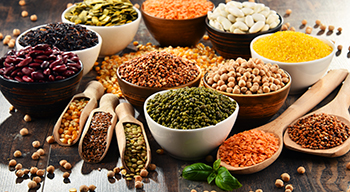More Health and Nutrition Bites
Related
High blood pressure? Exercise!
We know that regular exercise is just one of the ways those with higher blood pressures can help improve their blood pressures. Yet we don't know that regular exercise necessarily leads to lower risk of death from all causes or from heart disease.
When should you exercise?
Recent research shows that of those who maintained a significant weight loss for 7 years or more, the majority exercised at least 4 times per week and tended to exercise at about the same time every day.
Does Walkability Equal Walking?
Is your neighborhood walkable? As part of the overall effort to address high levels of overweight and obesity along with low levels of exercise, researchers are looking not only at barriers to eating healthy, but also at barriers to exercise. Walking is one of the easiest and cheapest exercises to perform, but some neighborhoods are more conducive to walking than others.
Health & Nutrition Bites
Get the latest health and diet news - along with what you can do about it - sent to your Inbox once a week. Get Dr. Gourmet's Health and Nutrition Bites sent to you via email. Sign up now!
Protect your eyes with legumes

A few years ago (okay: more than a few) I shared with you a study that suggested that consuming eggs, which are high in certain carotenoids such as lutein and zeathanthin, might be related to a reduced risk of Age-Related Macular Degeneration. The problem is that the study's conclusions are a bit like assuming that if A=B and B=C, then A=C.
That is: saying that eating more eggs reduces your risk of Age-Related Macular Degeneration is a bit of a stretch. Yes, eggs contain lutein and zeathanin, but so does kale and spinach. Eating eggs is one way to get more lutein and zeathanin, but not the only way.
Today's research is a prospective study that followed over 1,500 adult Australians over the age of 49 for over 5 years (Brit J Nutr 10.1017/S000711452000104X).
The authors focused on the risk of cataracts, and all included participants had undergone an opthalmologic checkup at the start of the study to test for the presence of cataracts.
At the start of the study the authors asked the participants to fill out a food frequency questionnaire specifically designed for Australians, in addition to questionnaires regarding health status, height, weight, educational level, smoking status and alcohol consumption levels, and more.
The authors stratified the intake of whole grains and legumes into four increasing levels based on the lowest amounts of intake versus the highest amounts of intake. They then compared the whole grain and legume intake of those who developed cataracts over the course of the study with those who did not.
Interestingly, they saw no relationship between whole grain intake and the risk of cataracts. On the other hand, those with the highest level of legume intake (of four levels) were 67% less likely to develop cataracts than those in the lowest level (of four levels) of legume intake.
Indeed, the authors calculated that increasing one's intake of legumes by 75 grams per day decreased a participants' risk of cortical cataract by 16%, nuclear cataract by 40%, and posterior subcapsular cataract by 41%.
What this means for you
While it's likely that legumes are better for your eyes than whole grains, this doesn't tell us what, specifically, is driving those results, whether it's soluble fiber, zeathanthin, lutein, or something else entirely.
The take-home message for you should be that a healthy, varied diet of quality calories including plenty of legumes and whole grains is likely to protect your eyes better than one full of processed foods.
First posted: April 8, 2020

